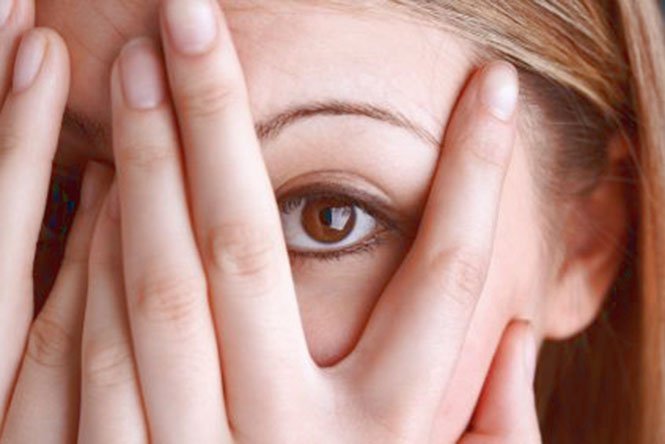How many times in the last week have you felt stressed or anxious? Work deadlines, an argument with a partner, running late, traffic. The list of events and situations that can trigger stress and/or anxiety is endless. For the most part, these are extremely normal and necessary emotional reactions to life. However, at what point to you need to worry about your worrying?
Let’s start by looking at the difference between two terms that are often used interchangeably: Stress and Anxiety.
Stress vs Anxiety
Typically, stress is a normal response to a specific situation or event. Once the event has passed, so does the stress response. Think HSC or job interview.
Anxiety, on the other and, tends to stick around even after the event has passed. It commonly exists alongside negative thoughts, such as “What if…..?”, and feelings of dread, as though something bad is about to happen. Nearly all of us experience this at some point, and the key to moving through these unpleasant and distressing feelings is to learn how to identify stress and anxiety when it occurs, and develop a toolbox of practical coping strategies that work for you. Everyone’s tool box is different, but there is a list of management tips below.
But what about when life-stressors don’t go away, or coping strategies just don’t seem to work? In these circumstances, anxiety can become chronic and can wreak havoc on both your mind and body, manifesting in poor sleep, irritability, memory loss, gastro intestinal problems, high blood pressure and even depression. If left unmanaged, it can cascade until you find yourself having difficulty managing simple day-to-day tasks.
When, for example, we are working an 80-hour week with a difficult boss, or have an unsettled baby who keeps us up all night, and we feel constantly anxious, our thinking can become clouded and restricted, and our mood can drop (depression can even begin to creep in). This is red flag territory, when normal anxiety can turn into a clinical disorder.
Anxiety Disorders
Clinically, there are many different types of anxiety disorder. However, the underlying theme is related to a perception that the anxious feelings are always there, impacting on daily functioning in a number of ways.
People who have an anxiety disorder often develop a number of dysfunctional strategies in an attempt to avoid anxious feelings. For example, those with Obsessive Compulsive Disorder (OCD) may adopt a number of compulsions in an attempt to reduce anxious feelings. In Social Anxiety Disorder, they avoid social situations to minimise anxiety and distress.
The good news is that, although anxiety is common, anxiety disorders are far less so. While there is no single cause, there are a number of risk factors that contribute to a person developing an anxiety disorder, including: a family history of anxiety; being highly strung; another mental health problem (such as depression); a build up of stress. When risk factors combine with a stressful event, or multiple events, an anxiety disorder may develop.
Can you Cure Anxiety?
While we can never get rid of anxiety altogether, we can certainly learn to “manage” anxiety by understanding what’s it’s telling us, and using a range of functional coping strategies. The key word here is “functional”. What’s the difference being a functional and another coping strategy?
Put simply, dysfunctional strategies are usually about avoidance. For example, using drugs or alcohol, or simply avoiding the very thing that makes you anxious, perhaps by leaving school, changing jobs, dodging crowds, avoiding driving. Functional strategies are about learning how to work through the anxiety by understanding your body, breathing and relaxation, acceptance techniques, problem solving strategies, challenging unhelpful thoughts and challenging avoidance.
A great start is to accept the discomfort that anxiety brings, pay attention to how it feels in your body, and work with it – as opposed to running in the opposite direction. To do this, you need to learn how to use relaxation to “surf” the anxiety until it subsides. Remember that like any emotion, anxiety doesn’t last forever, as long as you accept it. Once you learn to accept these feelings, it’s amazing how your thinking then becomes less negative and restricted and more open to new opportunities and solutions.
When to Seek Help
The decision about whether to seek treatment depends largely on the impact of your symptoms on your life, as well as your ability to implement helpful coping strategies on your own.
The key to managing anxiety and stress is early detection and management. In other words, the longer you ignore it, the worse it can get – especially if you don’t have those functional coping strategies. So chat with a health professional, such as a GP, if you are in doubt.
Treatment of Anxiety
While medication, usually an SNRI antidepressant (eg. Pristiq, Effexor or Cymbalta) may be prescribed to treat some types of general anxiety; by far the best treatment is therapy, especially cognitive-behavioural therapy and acceptance and commitment therapy. What works for you may not work for someone else. Shopping around for the “right fit” when it comes to treatment and health professionals is certainly encouraged.
Top 5 Anxiety Management Tips
So what can you do to bring your general anxiety down a few notches, or prevent a relapse of severe anxiety?
- Get good quality sleep. Sounds simple, but sleep is so important! Poor sleep can be a significant trigger for stress and anxiety, so stick to a consistent bedtime routine as much as possible.
- Learn to say “no” and focus on what you can control. Don’t waste energy worrying about things you cannot control, including the feelings and reactions of others when you assert a healthy boundary. Your needs are just as important as everyone else’s!
- Learn to recognise anxiety in your body. Does it appear in the form of a migraine? Gastro-intestinal problems? Or perhaps fatigue? Learn to recognise these so that you can then work out your triggers, limitations and implement appropriate coping strategies.
- We all know that the endorphins released when we exercise make us feel good, but the benefits of regular exercise extend way beyond that. Exercise reduces fatigue and improves sleep, increases strength, balance and agility and improves self-esteem. Words of caution, however: don’t overdo it. Too much exercise can have the opposite effect by increasing cortisol and stress on the body.
- Yoga/meditation. Another obvious one, but crucial. Learning how to breathe and be mindful is an amazing skill that can help to immediately decrease anxiety. Yoga also helps you get to know your body, which will help you identify signs of stress and/or anxiety as they occur.
- Good nutrition. Stimulants such as caffeine have immediate effects on the central nervous system, which can be incredibly unhelpful if you are feeling anxious. Cutting these and sugary processed food is a good start. Hydrating, eating smaller portions and filling up with anti-anxiety foods, such as wholegrains, leafy greens, raw honey, camomile tea, plant-based protein and good fats, will help.
- Plan ahead! Make sure you have things to look forward to, as this can help shift your thinking away from those unhelpful “What If”s.
Finally, if you are still unsure whether to seek help, or if you would simply like more information, then take a look at the following websites:
https://www.beyondblue.org.au/the-facts/anxiety
https://www.healthdirect.gov.au/living-with-anxiety
https://au.reachout.com/tough-times/somethings-not-right/stress-and-anxiety




















